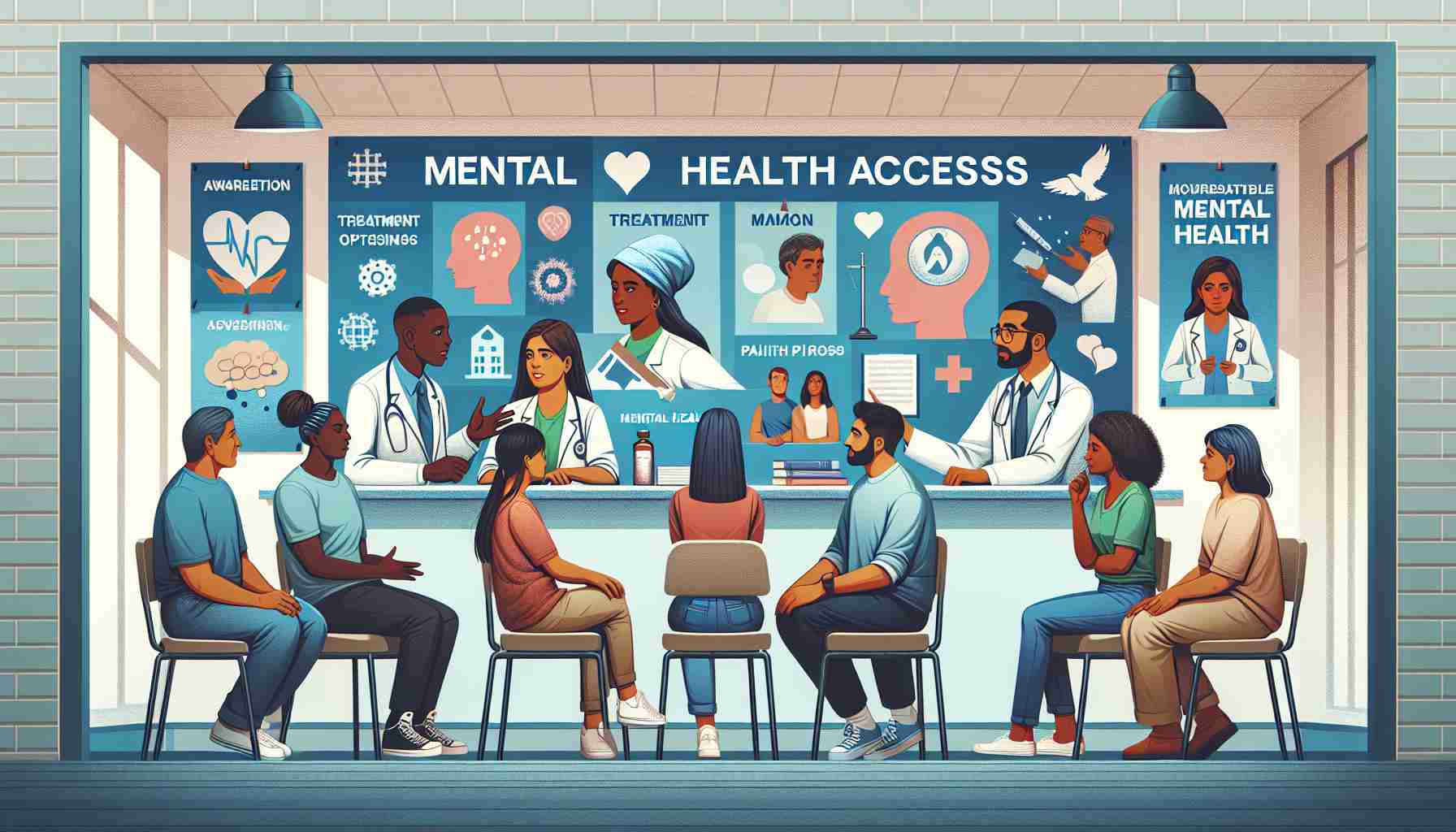A new era of mental health access in local communities is on the horizon, driven by a collective commitment to enhancing services for those in need.
In response to growing demands for mental health care, a recent decision was made to repurpose an existing healthcare facility into a specialized behavioral health center. This shift aims to address the urgent need for comprehensive psychiatric services in the region.
Community leaders, acknowledging the critical importance of mental health support, have taken proactive steps to create a nurturing environment for individuals seeking treatment. By repurposing healthcare facilities and investing in behavioral health services, they strive to provide a vital lifeline for those grappling with mental health challenges.
The commitment to mental health care is underscored by a multifaceted approach that includes crisis intervention, acute psychiatric care, detoxification and rehabilitation programs, and specialized services for seniors and adolescents. This holistic strategy reflects a deep-rooted dedication to promoting mental wellness across all age groups.
While challenges may arise, such as public opposition to certain initiatives and logistical hurdles in facility renovations, the overarching goal remains unwavering: to ensure that individuals with mental health needs receive the care and support they deserve.
Through collaborative efforts among healthcare providers, governmental agencies, and community advocates, the landscape of mental health services is evolving to meet the dynamic needs of the population. By fostering a culture of empathy, awareness, and accessibility, local communities are paving the way for a brighter, more inclusive future in mental health care.
Expanding Mental Health Access: Overcoming Challenges and Embracing Opportunities in Local Communities
As local communities embark on a journey to enhance mental health access, several crucial questions come to mind in the pursuit of a more comprehensive and inclusive system of care.
What additional strategies can be implemented to further improve mental health access in underprivileged areas within the community?
Answer: Some potential strategies include mobile mental health clinics, teletherapy services, community outreach programs, and partnerships with local organizations to increase awareness and access to mental health resources in marginalized communities.
What are the key challenges associated with repurposing existing healthcare facilities into mental health centers?
Answer: Challenges may include securing funding for renovations, ensuring compliance with regulatory requirements for mental health facilities, addressing potential stigma associated with mental health services in the community, and managing the transition of existing healthcare services to accommodate behavioral health programs.
What advantages can specialized behavioral health centers offer compared to traditional mental health services?
Answer: Specialized behavioral health centers can provide tailored treatment plans, a multidisciplinary approach to care, access to advanced therapeutic interventions, and a supportive environment designed specifically for individuals with mental health needs. However, challenges may include higher costs of specialized care and potential limitations in service availability.
Key challenges in improving mental health access in local communities revolve around overcoming stigma, addressing funding constraints, ensuring sustainable resources, and integrating mental health services into existing healthcare infrastructure seamlessly. While the commitment to enhancing mental health care is commendable, it is essential to navigate these challenges effectively to achieve long-term success.
Advantages of investing in mental health access include a healthier, more resilient community, reduced strain on emergency services, improved overall well-being and productivity of residents, and a more compassionate and inclusive society. However, disadvantages may include financial constraints, resistance to change from certain stakeholders, and potential disparities in access and quality of care across different community segments.
For further information on mental health access and community-based initiatives, visit World Health Organization for global perspectives and guidelines on mental health promotion and access. Engaging with reputable organizations in the mental health advocacy space can provide valuable insights and resources for local communities striving to improve mental health services.
By addressing these critical questions, acknowledging challenges, and harnessing the collective determination of local stakeholders, communities can pave the way for a more accessible, equitable, and effective mental health care system for all residents.
